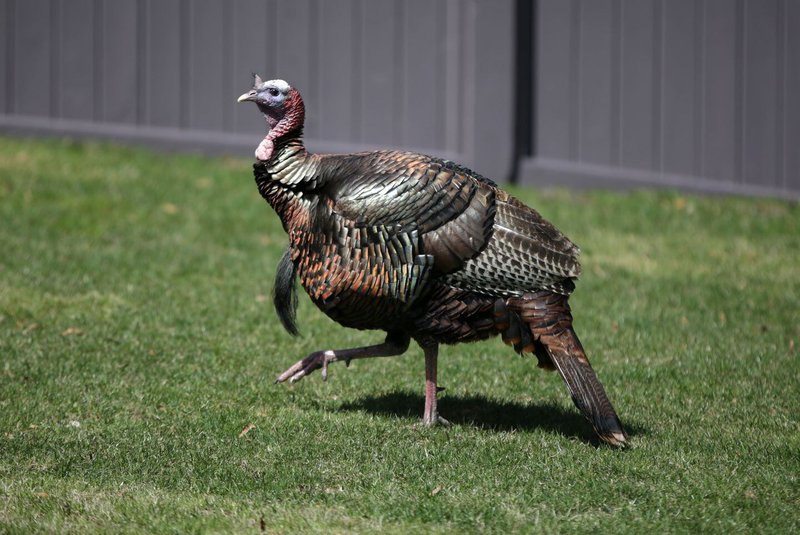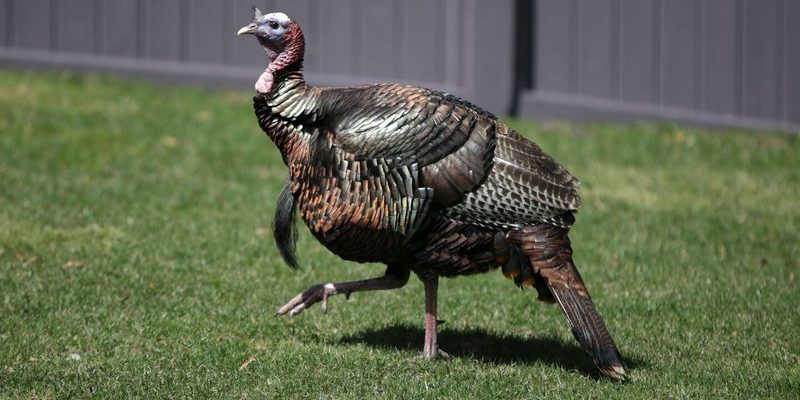
Just like us, turkeys have their own personalities, and their behavior can change based on various factors. Whether it’s their social dynamics, environment, or even health issues, understanding the root causes can help you address this aggression in a constructive way. So, grab a cup of coffee, and let’s dive deep into the world of turkey behavior and what might be fueling your turkey’s feistiness.
Understanding Turkey Behavior
Turkeys, like many animals, communicate through their behavior. They have a social structure that can be complex. When you observe your turkey acting aggressively—maybe puffing up, flapping wings, or even charging at you—it’s important to interpret these signals correctly. Think of this behavior like a teenager throwing a tantrum; there’s often a reason behind it.
In the wild, turkeys are protective creatures. They establish a pecking order, and aggression can indicate a turkey trying to assert dominance or defend its territory. If you have multiple turkeys, they might be vying for leadership. This hierarchy is crucial for turkeys as it keeps the peace among them. If a turkey feels insecure or threatened, it might resort to aggressive behavior as a way to cope.
Common Triggers for Aggressive Behavior
Several triggers might cause your turkey to act aggressively. Here are some common ones to keep in mind:
- Breeding Season: During mating season, male turkeys, or toms, can become particularly aggressive as they compete for hens’ attention.
- Protective Instincts: If they feel their space is invaded—be it by another bird, a pet, or even you—they can respond aggressively.
- Health Issues: Sometimes, illness or discomfort can lead to irritability. A turkey that isn’t feeling well may lash out more than usual.
- Fear: Sudden loud noises or predators can cause a turkey to react defensively, leading to aggression.
Recognizing these triggers can be the first step in managing their behavior. By observing your turkey closely, you can start to piece together what might be setting off their aggressive tendencies.
Assessing the Environment
The environment in which your turkey lives plays a big role in their behavior. Think of it like their personal space. If it feels cramped or stressful, your turkey might lash out. Here are some environmental factors to consider:
1. Space: Turkeys need room to roam. If they’re kept in a small area, they can feel stressed, leading to more aggressive behavior. Make sure they have enough space to move around and establish their hierarchy comfortably.
2. Shelter: A safe, cozy shelter can help reduce aggression. If they feel exposed or vulnerable, they might become defensive. Ensure their housing is secure and provides adequate protection from predators.
3. Social Dynamics: If you have more than one turkey, their interactions can create tension. Observe how they interact with each other. If one turkey seems to be bullying another, aggression can quickly escalate.
Making changes to improve their environment can lead to more peaceful behavior.
Dealing with Aggression
So, what do you do if your turkey is being aggressive? Here are some practical steps you can take to manage their behavior:
1. Give Them Space: Sometimes, simply allowing your turkey to have more space can ease aggressive behavior. If they feel cornered or threatened, they’re more likely to react negatively.
2. Observe and Document Behavior: Keep an eye on patterns. Are there particular times when aggression spikes? Maybe it’s breeding season, or perhaps it happens when new animals are introduced. Knowing when aggression occurs can help you anticipate issues.
3. Limit Stressors: Identify any potential stressors in their environment. This could be loud noises, the presence of other pets, or even changes in routine. Reducing these can often lead to calmer behavior.
4. Interaction Training: If your turkey is aggressive towards humans, you can work on desensitizing them. Use positive reinforcement by rewarding calm behavior and gradually introducing yourself during feeding times or other low-stress situations.
Consistent and gentle interaction can help you build a better relationship with your turkey, which can, in turn, reduce aggressive tendencies.
Health Considerations
If your turkey’s aggression seems out of the ordinary, it’s a good idea to consider health issues as a possible cause. Just like us, when animals aren’t feeling well, they may act differently. Here are some health-related reasons for aggression:
– Pain or Discomfort: If your turkey is injured or unwell, they might act defensively. Signs of pain include limping, unusual vocalizations, or aggressive behavior. If you suspect health issues, a vet visit is a smart move.
– Parasites or Illness: Internal or external parasites can cause stress and discomfort, leading to aggressive behavior. Regular check-ups and keeping their living area clean can help prevent these issues.
– Nutritional Deficiencies: A lack of essential nutrients can affect their mood and health. Ensuring they have a balanced diet rich in vitamins and minerals is key to keeping them healthy and calm.
Taking a proactive approach to your turkey’s health can help mitigate aggressive behavior.
When to Seek Professional Help
Sometimes, despite your best efforts, managing aggressive behavior may require help from a professional. Here’s when it might be time to reach out:
– Sudden Change in Behavior: If your turkey’s aggression seems sudden or unusual, it’s best to consult with a vet or animal behaviorist. They can help determine if there are underlying health issues at play.
– Escalating Aggression: If aggression is getting worse over time, or if it becomes dangerous for you or other animals, it’s time for expert guidance. Safety is always the priority.
– Training Difficulties: If you’ve tried various strategies without success, a professional can offer tailored advice and new techniques to help manage your turkey’s behavior more effectively.
Sometimes, bringing in an expert can save a lot of time and stress in the long run.
In summary, if your turkey is acting aggressive, it can stem from various factors like environmental stress, social dynamics, or health issues. By observing their behavior, assessing their living conditions, and taking appropriate steps, you can work towards a more peaceful relationship with your feathered friend. Remember, patience is key! It may take time, but understanding your turkey’s needs and behavior patterns will ultimately lead to a happier home for both you and your turkey. With a little love and care, you can turn that aggressive gobbler into a calm companion.

